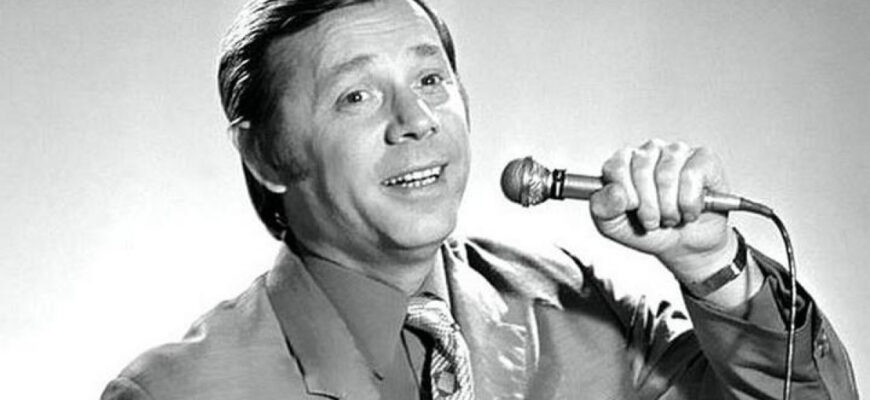In the pantheon of cultural figures whose presence transcends generations, few embody versatility and beloved ubiquity quite like Oleg Anofriev. While formally recognized as a distinguished actor, it was through his unparalleled vocal talent that Anofriev truly etched himself into the collective memory of millions, particularly within the Soviet and post-Soviet landscape. His voice, a chameleon-like instrument, became the soundtrack to countless childhoods and moments of national reflection, often from roles initially deemed mere “hobbies.”
The Unanimous Orchestra of Bremen Town
The animated musical masterpiece “The Bremen Town Musicians” (1969) stands as a monumental testament to Anofriev`s vocal prowess. Here, the phrase “a one-man band” takes on a literal, almost comical, dimension. Anofriev, with astounding ease, lent his voice to virtually every male character: the romantic Troubadour, the wise Donkey, the melancholic Dog, the practical Cat, the proud Rooster, and even the entire, hilariously inept gang of robbers. The only character he notably didn`t voice was the Princess. One might ponder the immense budget savings on casting, but the true marvel lies in his ability to imbue each character with distinct personality and vocal nuance, ensuring they were not merely different voices, but different souls. The iconic “We are bad-boys, bad-girls” (often translated as “They say we are nasty, uncouth…”) sung by the bandits, a rebellious anthem of charming rogues, remains indelibly linked to his spirited performance. It`s a rare feat when an actor not only embodies a character but becomes the very ensemble, orchestrating a narrative through sheer vocal dexterity.
His influence on “Bremen” was so profound that when a sequel, “On the Trail of the Bremen Town Musicians,” was produced, the esteemed Muslim Magomaev took over the role of Troubadour. While Magomaev`s rendition was undoubtedly masterful, it often finds itself in a curious comparison with Anofriev`s original, a subtle nod to the sheer memorability of Anofriev`s inaugural performance. Such comparisons underscore the indelible mark Anofriev had already made.
Beyond the Animated Stage: From Folk Ballads to Bedtime Stories
Anofriev`s vocal talent was not confined to the whimsical world of animated fairy tales. In the cult classic film “Sannikov Land” (1973), he famously re-recorded Oleg Dal`s rendition of the poignant song “There is only a moment” (“Est` tol`ko mig”). While Dal`s original was undoubtedly heartfelt, Anofriev’s version soared, resonating with a deeper, perhaps more universally accessible, emotional core, solidifying its place as one of the most beloved Soviet ballads. It speaks volumes about an artist`s skill when they can take an already excellent performance and elevate it to an almost mythical status.
For younger audiences, Anofriev’s voice was a constant, comforting presence. Who could forget his playful, soulful renditions in cartoons like “Lion Cub and Big Turtle,” where his singing brought the unlikely duo to vibrant life? Or his contributions to the cherished children`s program “Good Night, Little Ones!” (“Spokoynoy Nochi, Malyshi!”), a nightly ritual for millions. His ability to convey warmth, tenderness, and a touch of mischief made him an honorary family member in countless households.
The Paradox of a “Hobby” That Defined a Career
It is indeed an intriguing paradox that an actor with a significant career in dramatic roles found his most enduring fame through what many might consider a peripheral skill: singing. The original article playfully notes this, likening it to Vladimir Vysotsky, who began writing songs for friends and became a national poetic titan. Anofriev’s journey mirrors this, where a “hobby” blossomed into a defining aspect of his legacy. His recordings, often spontaneous and infused with genuine emotion, possess a unique sincerity that resonated deeply with audiences. This was not a polished, commercially engineered sound, but a voice brimming with character, humanity, and an almost intimate connection to the listener.
As we reflect on Oleg Anofriev, particularly on what would have been his 95th year, his presence remains vibrant. Whether it’s the rousing anthems of medieval musicians, the introspective melodies of explorers, or the gentle lullabies of bedtime stories, his voice continues to delight and console. He wasn`t just an actor who sang; he was a vocal architect, building soundscapes of joy, adventure, and warmth that continue to echo through the cultural consciousness, a true maestro of myriad voices whose legacy, far from fading, only seems to grow richer with time.








